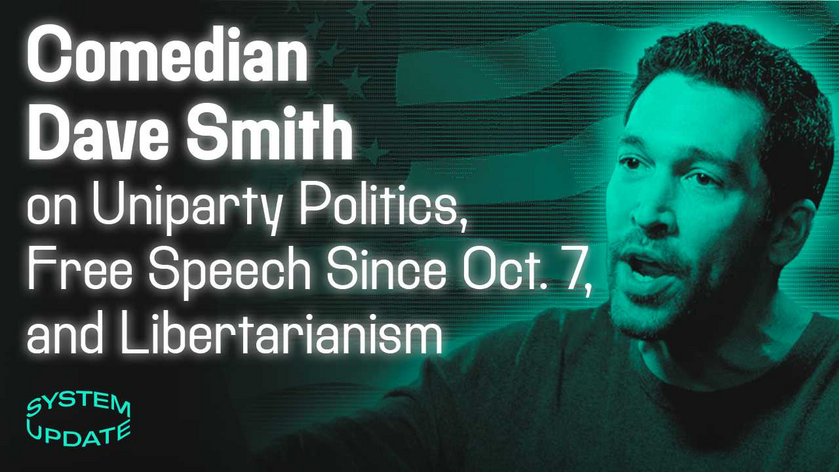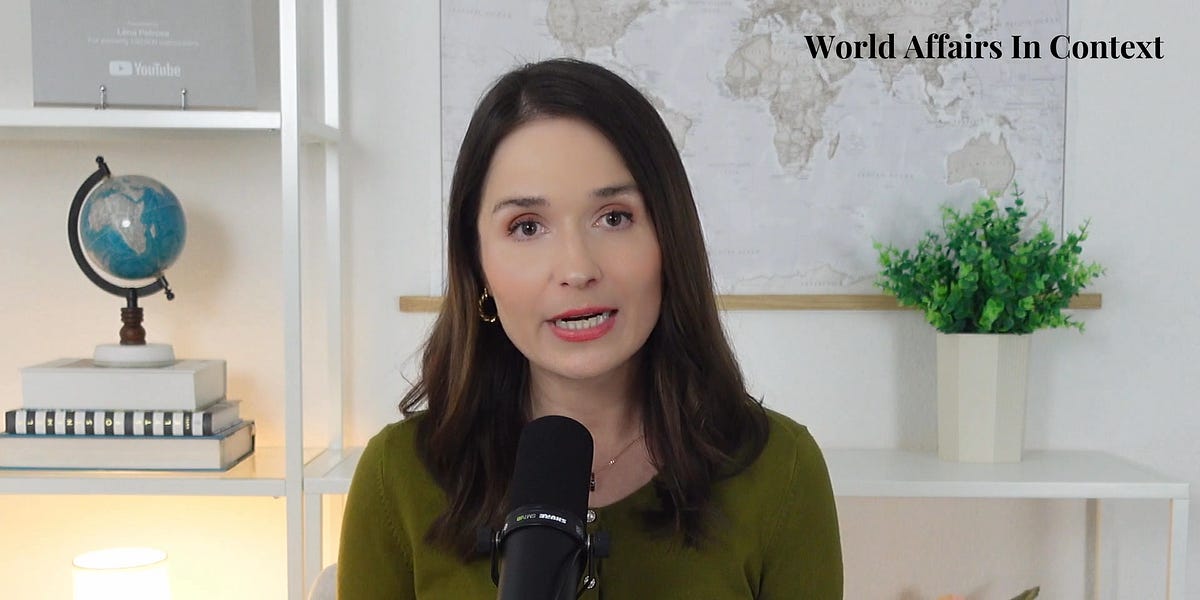Watch the full episode HERE
Good evening. It's Friday, June 21.
Tonight: It has been said for decades that American comedians have become the country's bravest, most trusted, and most reliable political commentators and analysts and that only they can be trusted to tell the real truth to the people about what is really going on. Oftentimes, this claim was most vocally promoted by the comedians themselves, who sometimes are strangely willing to proclaim themselves the new Walter Cronkite, or even some sort of new philosopher king of the middle of the modern age. One can scoff at those claims if one wishes – and I suppose I just engage a little bit of subtle scoffing myself when I said that – but it is true, undoubtedly, that many of the most beloved and influential political voices in the United States right now are some of the country's, well, most well-known comics.
This is not a brand-new trend. Comedians in the decades, say, the 1950s to the 1980s, have as often made news for their controversial political expression as they did for their comedy. People like Lenny Bruce, George Carlin and even Richard Pryor offered political observations that would have been seen as too offensive to taboo dogma to be heard anywhere outside of comedy. Yet there are also views and insights whose impact was at least as great outside the comedic world, deep into the heart of political discourse itself.
But this view of comedians, or perhaps more accurately, the self-professed political importance of comedians, began to have a lot more cachet and arguably became far more valid and defensible in the wake of the War on Terror when the political climate that arose in the United States and the corporate media, in particular, was far more limited, repressive, homogenized, and constrained then almost any other time period in American history. Out of that stifling climate emerged voices like Jon Stewart, who became a very vocal and aggressive credit of the Bush-Cheney administration and the War on Terror in a way few people on television were willing to do. He was followed by Stephen Colbert, who, believe it or not, actually offered some edgy, informative, and quite innovative, even uncomfortable anti-establishment humor. And then the crowning achievement of this trend, this modern-day trend, was, I think, Joe Rogan, someone who had spent his entire career more or less in comedy only to somehow become the most listened to and influential voice on a wide range of some of our society's most complex and polarizing political debates.
There are many things to say about this trend – some good and some most decisively not good – but there's no denying that the far-reaching impact of it, one that endures to this very day. There's a large sector of the American public, including a lot of young people, who do not turn at all to The New York Times or NBC or CNN or other corporate news outlets like that for their news, but rather is into Joe Rogan, someone who is able to appeal to such a large and ideologically diverse audience by basically refusing to attach himself to one partisan or ideological camp, an increasingly rare declaration of independence in our media landscape, and emerging from the behemoth that became “The Joe Rogan Show,” there is a whole new slew of comics who were at best mildly known, who have now become major names in a comedy world and beyond, in large part because of their frequent appearances on “The Joe Rogan Show.” Many of them frequently talk about politics, but in ways that very few people would suggest are insightful, inventive and very interesting. It's often just a bunch of banalities.
Our guest tonight, Dave Smith, however, is one of those people whose career was not political journalism or analysis, but comedy. And now we always had a political bent to him, often appearing even a decade ago on political shows, largely on cable. He was almost certainly more known for his successful career that he began building step by step in the world of comedy. His political career in comedy was mostly online, as is true for a majority of successful comedians these days. But he has recently become one of the most prominent and coveted and impactful political guests in the media landscape, including mainstream media landscape as well. He recently debated former New York Governor Chris Cuomo on “The Patrick Bet-David Show” which produced many viral clips and a large audience, largely because of how obviously disconnected from reality and from his own record Cuomo was, to put that mildly.
Since October 7, Smith has become one of the most vocal and outspoken critics of the state of Israel and the U.S., from its financing and arming of that country in that war, something which I think has surprised many people, including perhaps some of his fans or colleagues, due to the fact that, among other things, he himself is Jewish. Smith has shown no inkling or backing down. Quite the contrary, his advocacy has only become louder and more definitive, and he continues to actively seek out venues where he can debate this specific topic. I believe he was just on Candace's own show yesterday or today, where he had a debate on this very topic.
We wanted to have him on our show for many reasons, one of which is that we really talk about this comedy sector of culture. That is because we rarely talk about it, even though it's become one of the most consequential subcultures to emerge over the last ten years. But it's also because Smith himself has demonstrated a very effective and I think, very well-informed means of communicating these ideas, as has in the process, gained a lot of new fans in the political world.























